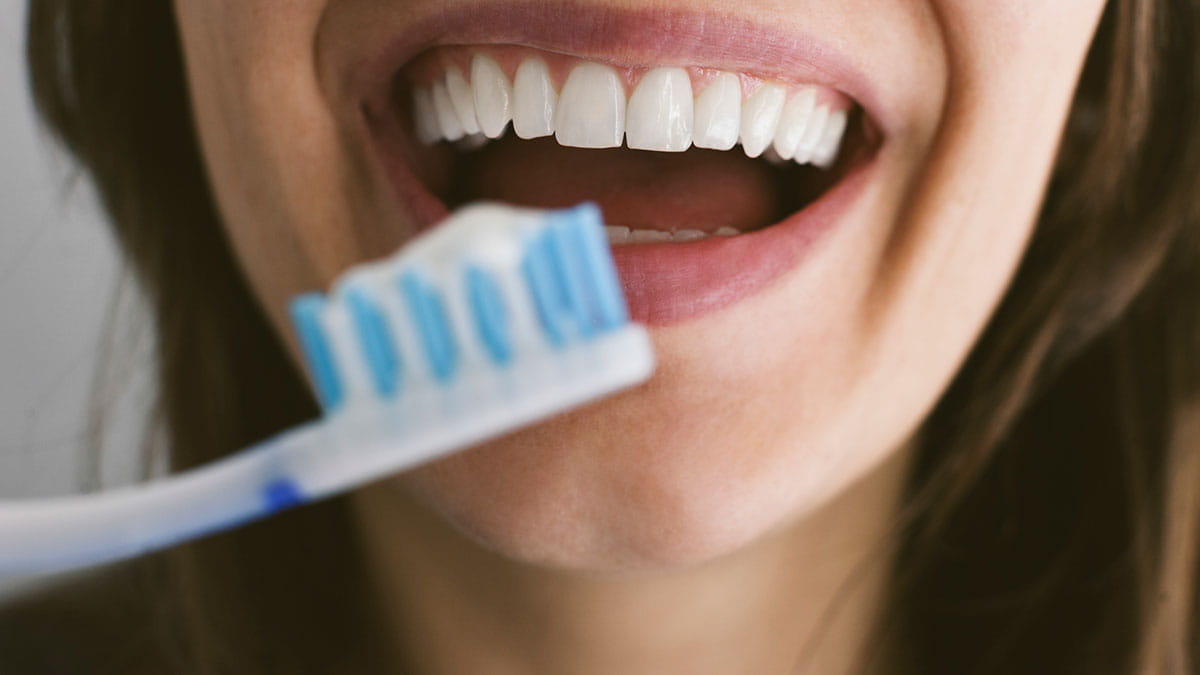Blog article
Meet your oral flora: The good, the bad, and the smelly

It’s called your oral flora and keeping it balanced is key to maintaining a healthy smile. Just like your gut microbiome, your mouth is home to bacteria, fungi, and other tiny organisms that play a big role in your oral health. When everything is in harmony, your teeth and gums stay protected – but when things get out of balance, that’s when problems can start.
In this blog, we explore how our oral flora works and what you can do to keep it healthy.
The good, the bad, and the smelly
Your mouth is home to a mix of helpful and harmful bacteria, each playing a different role in your oral health. The goal? Keep the good ones thriving while keeping the troublemakers in check.
The good:
- Streptococcus salivarius K12: This powerhouse bacteria helps suppress harmful pathogens like Streptococcus pyogenes and Streptococcus pneumoniae, which can lead to infections and autoimmune disorders. It also supports immune health, helps reduce symptoms of oral and respiratory infections, and maintains the health of your ears, nose, and throat.1
The bad:
- Streptococcus mutans: This sugar-loving bacteria turns the sweet stuff into acid, which erodes tooth enamel and causes cavities.2
- Actinomycetes: While normally present in the mouth, these bacteria can contribute to tooth decay and gum disease if left unchecked.3
The smelly:
- Sulphur-producing bacteria: Found on the tongue, these bacteria release foul-smelling compounds that can cause bad breath.4
By keeping the right balance of these bacteria, you can maintain a healthier, happier mouth.
5 simple ways to support your oral flora
A healthy mouth starts with good habits. Here’s what you can do to keep your oral flora in balance:
- Brush like a pro: Brush for two minutes, twice a day, and don’t forget to floss!
- Use fluoride toothpaste: Fluoride helps strengthen enamel and protect against decay.5
- Clean your tongue: Use a tongue scraper or gently brush your tongue to remove bacteria.
- Stay hydrated: Drinking water keeps your saliva flowing, which helps protect your teeth.6
- Visit your dentist regularly: Schedule dental check-ups and cleanings every six months to maintain oral health and address any concerns promptly.
How your diet affects your oral bacteria
What you eat and drink plays a big role in the type of bacteria that call your mouth home. A diet high in sugar and processed carbs gives harmful bacteria the fuel they need to thrive.7 But it’s not just food – drinks like alcohol can also impact your oral flora, reducing saliva production and creating a drier environment for bad bacteria to grow.8
Cutting down on sugar, eating more fresh fruits and vegetables, and staying hydrated can all help promote a healthier mouth.6
Other ways to support your oral health:
- Avoid smoking and vaping: Research shows that smoking and nicotine use can alter the balance of bacteria in your mouth, lungs, and gut.9
- Think before using mouthwash: Some mouthwashes can disrupt your oral microbiome. Ask your dentist which products are best for you.10
- Get regular check-ups: We know we beat this drum a lot, but it’s for good reason! A visit to the dentist isn’t just about fixing problems – it’s about preventing them before they start.
Your oral flora plays a huge role in keeping your teeth and gums healthy. By making a few simple changes to your routine, you can help the good bacteria thrive and keep your smile in top shape.



